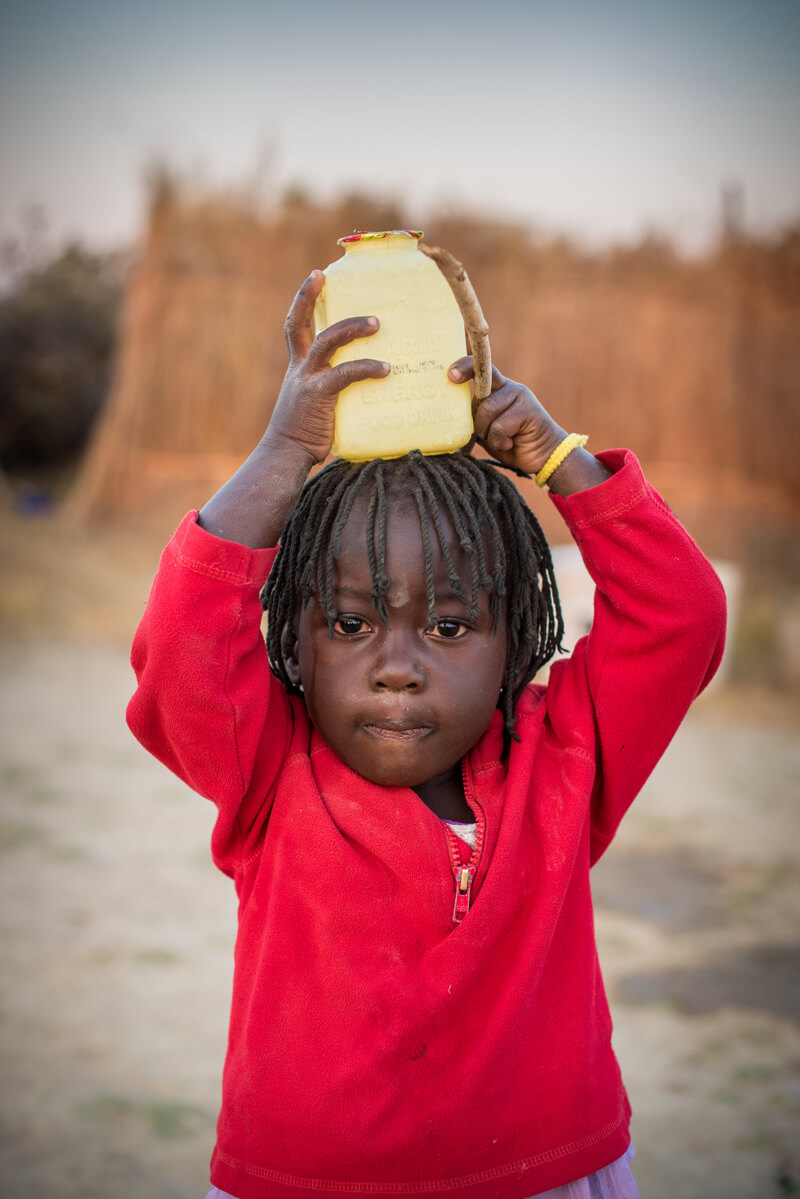Living WaterSample

Elina, 3, comes with her sister to a new World Vision borehole, Zambia, and helps carry some to her home close by. ©2014 World Vision, photo by Jon Warren
Waters of transformation
Jesus washes the disciples’ feet – John 13
Foot washing was a hygienic necessity in Jesus’ day. Imagine traveling everywhere on foot—either barefoot or sandaled—walking all day along dusty roads and dirt paths shared with animals.
In a world where honor was everything, foot washing also was an important act of hospitality. Failure to wash a visitor’s feet—or to offer water so they could wash their own feet—signaled disrespect.
Typically, foot washing was a job for the lowliest servant or slave. This arrangement reinforced the established social order: servants wash their master’s feet, not the other way around.
When Jesus gathered with the disciples for one last meal, he did the unthinkable. He took the role of a servant upon himself, pouring water into a basin, kneeling before each dumbstruck disciple in turn, and cleaning the grime from their feet.
If the shock of seeing their teacher debase himself wasn’t enough, Jesus drove the point home, telling the disciples they were to follow his example—by washing one another’s feet.
When he invites us to come and drink, it’s not just so we can live forever. It’s so we can live transformed—right here and now. If we allow it, water changes the way we live; it transforms us into servants.
An unmistakable sign of the transformation water brings in Zambia is the way community members are uniting to serve one another.
Haalumba, the pump-minder is 58-year-old Enock. In addition to maintaining existing wells, Enock has built twelve new boreholes with World Vision—and they are built to last. “These boreholes never break down,” he says with pride.
Enock does all of this as a volunteer. “I am a person of the people,” he says. “I am doing this work to save the community.”
This Christ-like attitude is evident elsewhere in Haalumba. It can be seen in the way young men like Timmy, 14, are changing their attitudes about gender. “I used to think it was a girl’s job to fetch water and wash dishes,” Timmy says.
A new borehole brought a whole new mindset for the teenager. “I help my mother in the garden,” he says. “I don’t think fetching water is a girl’s job. I will help my wife fetch water.”
Timmy’s example hasn’t gone unnoticed. “It amazes me that he fetches water,” says Clara, 12.
Clean water, offered in Jesus’ name has brought a sense of servanthood and common purpose to Haalumba.
Scripture
About this Plan

In the ancient Jewish world, “living water” referred specifically to a source of fresh, flowing water—such as a stream or river—which offered cool refreshment. Such waters were contrasted with “dead” or stagnant waters. “Living water” became a powerful image of the life God offers.
More
We would like to thank World Vision for providing this plan. For more information, please visit: https://www.worldvision.org/faith
Related Plans

The Promise of Heaven by Dr. David Jeremiah

God’s Strengthening Word: Pursuing Peace and Justice

God Is in Control

Who Is Jesus?

How to Love Like Jesus

The Legacy of Motherhood

The Guilt Strip: Time to End the Guilt Trip

How to Keep Your Head on Straight in a World Gone Crazy

From the Cross to the World: Living Easter Every Day

